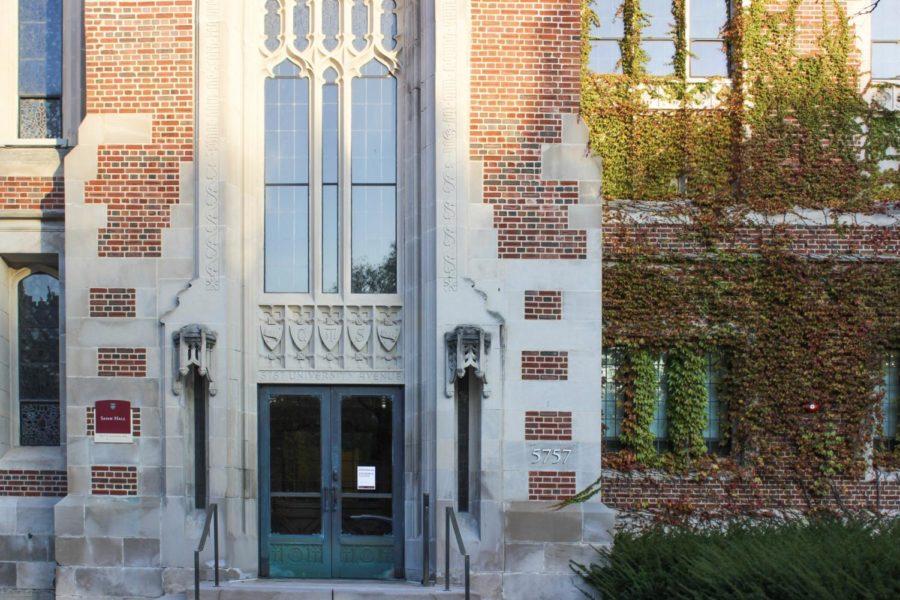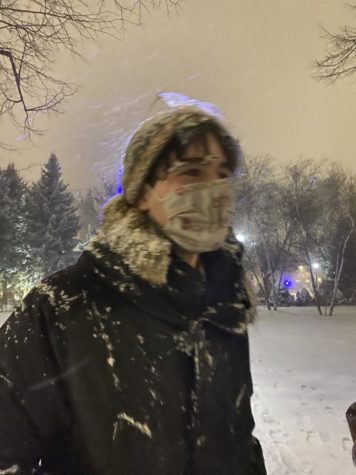UChicago trustee and donor Kenneth Griffin helped inject billions into hedge fund Melvin Capital last week after the fund lost billions in January on a bet that the share price of GameStop would fall.
The bet, or “short,” by Melvin Capital on GameStop caught the attention of the Reddit forum r/WallStreetBets, a community of day traders who share tips for investing, often while calling one another derogatory names.
Short selling is a form of investing in which an investor, or “short seller,” makes a profit if the value of a stock declines. Shares of stock are borrowed to short sellers from lenders, which the short seller then sells at the market price. The stipulation is that the short seller must eventually return the shares they borrowed from their lender. Until a short seller does so, they need to regularly pay interest to their lender. If the short seller bets correctly, and the value of the stock declines, the seller can buy the shares again at a cheaper price than they sold them for and return them to the lender, keeping the difference as profit.
There’s no doubt that betting on stocks to fail can be a risky practice. In the event that the shorted stock goes up in price, the short seller is faced with two choices. The first option is to “cover” their bet, or buy shares to return them to their lenders immediately. While the short seller loses money, having paid more to reacquire their shares than they did selling them, this option lets them exit the trade, preventing further loss no matter how high share prices become. Option two is to try to wait out the rally in the hopes that prices will fall back down eventually.
As short sellers who choose option one cover their bets, purchasing shares to do so, the increased demand causes the market price of the stock to continue to rise—meaning the potential losses of investors who choose to wait out the rally rise higher and higher. This motivates more short sellers to scramble to cover their bets and causes share prices to rise again, which motivates even more short sellers to cover, and so on. This positive feedback loop is known as a “short squeeze.” As there is no theoretical limit to how high a share price can go, the potential loss from a short is unbounded. However, short squeezes do not last indefinitely, and share prices often decline eventually.
After users on r/WallStreetBets noticed the extraordinary short interest in GameStop—on Tuesday, January 26, more than 139 percent of all shares available for trading were sold short—the forum’s band of day traders realized they could engineer one of the largest short squeezes in history. On the other end of the trade were hedge funds like Melvin Capital, who had amassed substantial short positions in the video-game retailer.
For hedge funds like Melvin Capital, betting that GameStop’s shares would decline seemed like a no-brainer. In a world where video games can increasingly be downloaded online through virtual platforms like Steam or the PlayStation Store—or even streamed from the cloud through services like Google’s Stadia or Nvidia GeForce Now—the concept of walking into a physical store to buy a video game seems outdated. Even before the COVID-19 pandemic devastated retail stores, GameStop reported net losses for two of the past three fiscal years.
What GameStop’s hedge fund short sellers—and their legions of sophisticated financial analysts—failed to take into account, however, was the thousands of internet citizens ready to pounce. Some were savvy enough to understand that they could make massive gains by engineering a simultaneous short and “gamma squeeze.” Some liked the idea of making billion-dollar firms bleed. And some just thought that the idea of buying GameStop shares was funny.
On Wednesday, January 27, GameStop’s stock (GME) reached a high of $380 a share, compared to just $19.25 on December 31. Melvin Capital had taken 30 percent losses. To prevent their disastrous GameStop short from incurring even greater losses, the hedge fund needed billions of dollars to close their position. That evening, Melvin announced it was accepting a cash injection of $2.75 billion from hedge funds Point72—led by New York Mets owner Steve Cohen, who provided $750 million—and Kenneth Griffin’s Citadel, who transfused $2 billion into the beleaguered fund. Griffin is a trustee of the University of Chicago and the namesake of the Kenneth C. Griffin Department of Economics, among other things on campus.
By Friday, January 29, the damage to Melvin Capital became clear. The firm reported its total January loss was 53 percent in January. As GME’s price reached $325 on Friday, its short sellers had lost a combined $19 billion.
The sudden spike in the price of GameStop stock caused many investors and economists to scratch their heads at the absurdity of the situation.
Booth economist Eugene Fama, whose pioneering research in asset prices—including the development of the efficient market hypothesis—won him the 2013 Nobel Prize in economics, thought it was too early to determine precisely what was happening on Wall Street. “All answers (including mine) are pure speculation,” he wrote in a comment to The Maroon. “I have nothing intelligent to say about it.”
Alex Imas, an assistant professor of behavioral science at Booth, had more to say; though like Fama, he emphasized that only time could tell what would happen to the markets.
Imas wrote in an email to The Maroon that the attack on Melvin Capital “could be the beginning of a brave new world.”
The squeeze could signal the start of a period of increased “volatility and ‘democracy,’” Imas wrote, even though “there will still be winners and losers.”
“Or it could be a fluke,” he said. “We'll see in the next 6 months.”
As of the end of the trading day on Tuesday, February 2, the price of a share of GameStop had declined to $90, a decline of 81.3 percent from Thursday’s all-time high of $483 a share.











